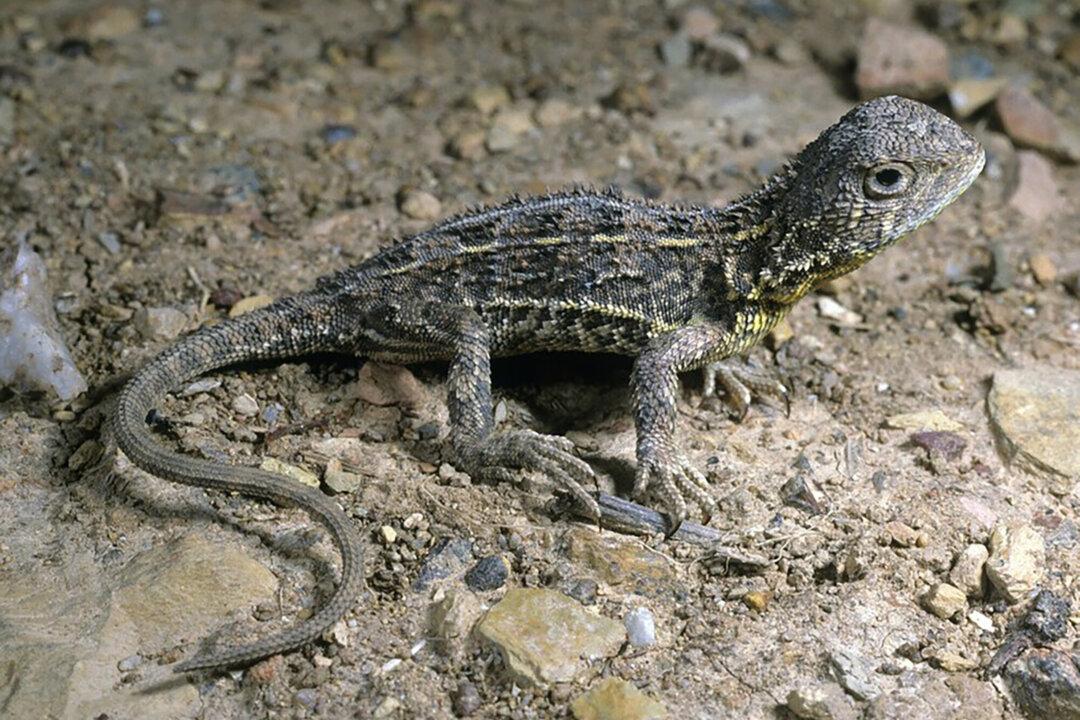
A supplied image obtained on Monday, June 5, 2023, of A Grassland Earless Dragon, Southeastern Australia. AAP Image/Supplied by CSIRO
A rare species of Australian lizard has been spotted in the wild for the first time since 1969, having previously been written off as extinct.
The discovery of a Victorian grassland earless dragon population has conservationists and nature lovers buzzing.





